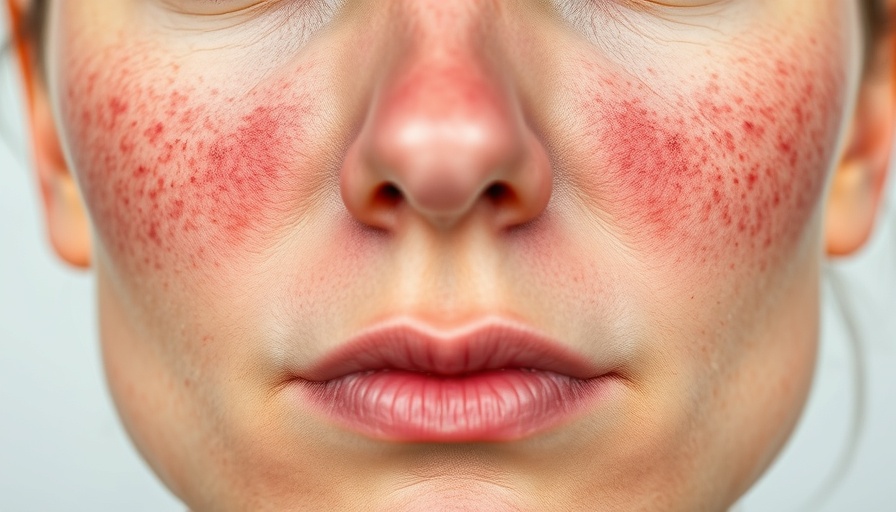
Understanding Rosacea: A Common Yet Misunderstood Condition
April marks Rosacea Awareness Month, shining a spotlight on a condition that affects approximately 16 million Americans. Often confused with sunburn or acne, rosacea is characterized by persistent redness on the central part of the face, including the cheeks, nose, forehead, and chin. For many, the initial attempts to manage this condition can sometimes exacerbate it, as they might flee to harsh products under the impression that they can treat their symptoms.
Common Triggers: What You Should Know
The National Rosacea Society (NRS) recently shared findings from a survey of over 1,100 individuals living with rosacea. Alarmingly, 82% reported that certain skincare products aggravated their symptoms. Ingredients such as astringent alcohol, fragrances, and even menthol emerged as top aggravators. This highlights the critical necessity for education about personal triggers and cautious product selection.
How to Identify and Manage Rosacea Effectively
Diagnosing rosacea can be challenging since its symptoms may resemble those of other skin conditions. The NRS emphasizes recognizing signs such as persistent facial redness, itching, and the possible appearance of bumps or tiny visible blood vessels, often accompanying irritating sensations in many patients. For those who suspect they have rosacea, seeking a dermatologist’s insight is crucial, alongside utilizing the NRS’s program that identifies skincare and cosmetic products deemed safe.
Holistic Approaches to Managing Rosacea
While dermatological treatments can aid in the management of rosacea, it is equally important to adopt holistic practices that may minimize flare-ups. Dr. Zoe Diana Draelos, a leading voice in dermatology, recommends gentle cleansers and moisturizers that support the skin's barrier. Additionally, the incorporation of sunscreens that protect against harmful UV rays is essential to bolster the skin’s defenses. Patients should consider lifestyle modifications, including managing stress and adjusting diet, as these factors can significantly impact their skin condition.
The Role of Medical Spas in Rosacea Management
For medical spa owners, understanding the intricacies of rosacea is vital, as it empowers staff to provide informed care and recommendations. Training team members on recognizing symptoms, advising clients on safe skincare products, and encouraging consultations with dermatologists can make a significant difference in client satisfaction and loyalty. This awareness not only uplifts business practices but also builds a supportive community for those affected by the condition.
In conclusion, as we recognize Rosacea Awareness Month, it is crucial for both practitioners and those affected to foster an understanding of rosacea’s impacts. Educating ourselves about triggers and implementing holistic approaches can significantly improve quality of life for those suffering from this skin condition.
 Add Row
Add Row  Add
Add 




 Add Row
Add Row  Add
Add 

Write A Comment